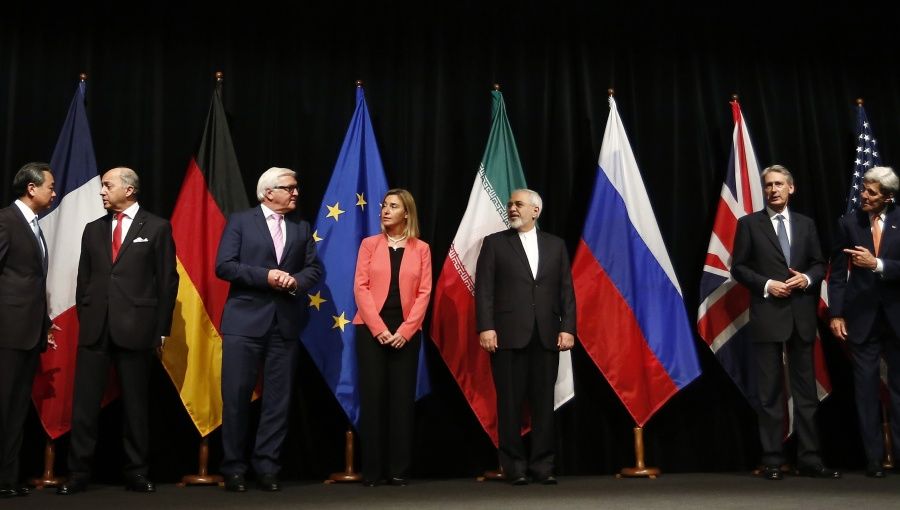Six European countries join Iran trade system

A few minutes every morning is all you need.
Stay up to date on the world's Headlines and Human Stories. It's fun, it's factual, it's fluff-free.
On Sunday, December 1, six European countries joined the Instrument in Support of Trade Exchanges (INSTEX) trading system – a trading system that facilitates trade between the companies of the signatories and Iran without contravening U.S. sanctions. Belgium, Denmark, Finland, the Netherlands, Norway and Sweden joined the system which seeks to bypass U.S. sanctions on Iranian trade by avoiding using the dollar or U.S. banks.
In a joint statement, the six European nations said they are becoming shareholders in INSTEX. Their participation “further strengthens INSTEX and demonstrates European efforts to facilitate legitimate trade between Europe and Iran.” The six new countries join the United Kingdom, Germany and France who founded INSTEX and also oppose President Trump’s decision to withdraw from the 2015 nuclear deal.
What is the purpose of INSTEX?
According to a U.S. Congressional Research Service (CRS) report, the European Union and other countries have sought to continue assisting Iran despite the imposition of U.S. sanctions, which were set after the United States withdrew from the nuclear deal agreement.
By maintaining the economic benefits of the nuclear deal flowing to Iran in order to persuade the nation to act in accordance with the 2015 nuclear framework, it contains their nuclear ambitions and avoids conflict. The expansion of the INSTEX system to nine members represents “a clear expression of our continuing commitment” to the 2015 agreement, the UK, Germany and France added.
The three nations have said that they expect INSTEX to continue to expand in the future, raising the possibility that Europe will defy U.S. sanctions.
[article_ad]
What is INSTEX?
INSTEX is a European payment system established in January 2019. Its purpose is to facilitate trade with Iran without breaching U.S. sanctions. According to AP News, with INSTEX acting as a middleman, it reduces the need for EU countries and Iran to interact directly. This is largely beneficial for EU companies since financial institutions working with them are hesitant to accept any funds originating in Iran, even for humanitarian trade that is formally exempt from sanctions.

The U.K. foreign secretary has said that European nations founded INSTEX to “preserve sanctions relief for the people of Iran.” The sanctions have caused severe economic distress in Iran. Following the imposition of ‘the toughest ever’ sanctions, the rial declined by around 60%. The production of oil, a critical Iranian export, fell from a peak of 2.8 million barrels a day before the sanctions to an estimated few hundred thousands of barrels after Trump imposed trade restrictions.
Although European signatories pledged to uphold the nuclear deal – seeing the agreement as a significant contributor to global stability – experts claim INSTEX is unlikely to make a substantial difference to the Iranian economy. Upon announcing the formation of the system, U.K. Foreign Secretary Jeremy Hunt said INSTEX would only apply to food, pharmaceuticals and consumer goods – items that are not subject to U.S. sanctions.
Oil, Iran’s primary source of revenue, is not covered under INSTEX.
Although only nine of the eligible 28 EU countries have joined the payment system so far. Recently, Russia also expressed an interest in joining the system.
United States response
According to reports, U.S. sanctions had persuaded European companies to sever business ties with Iran. The United States has said it did not expect INSTEX to inspire European companies to return to the Iranian market. Alongside reimposing sanctions on Iran, Trump warned that any company doing business with Iran would get shut out of the much larger U.S. market and face “severe consequences.”
Previously, U.S. Vice President Mike Pence had criticized INSTEX and urged European allies to abandon the nuclear deal entirely. According to Pence, INSTEX undermines “U.S. sanctions against this murderous revolutionary regime” – a statement that aligns with Trump’s announcement to withdraw the United States from May of 2018. “We cannot prevent an Iranian bomb under the decaying and rotten structure of the current agreement,” Trump said.
Iran nuclear deal critic Mark Dubowitz, chief executive of the Foundation for Defense of Democracies (FDD), has dismissed INSTEX stating, “as long as the Trump administration is willing to enforce U.S. sanctions, very few companies will risk punishment to process transactions through INSTEX.”
How does Iran view INSTEX?
Iran seems to have responded to INSTEX with mixed feelings. Some Iranian officials have dismissed INSTEX, stating that European countries have been unable to convince companies to use the system. As a result, Iran has threatened to violate more terms of the 2015 nuclear deal, unless the deal signatories can reverse the economic damage caused by U.S. sanctions. Following the United States withdrawal, the Guardian reports that Iran has disregarded several terms of the agreement.
Yet, some Iranian media outlets have praised the European effort, saying “Europe is an irreplaceable trade partner for Iran and that’s why efforts like INSTEX are so important.”
[article_ad]




Comments ()